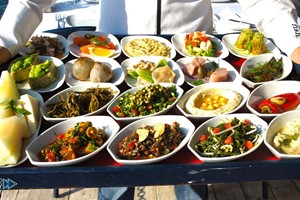The migration of Turkish individuals to Germany has significantly influenced their dietary habits, resulting in a blend of traditional Turkish and Westernized food practices. This shift has far-reaching implications for their health, as shown in a recent study comparing the dietary behaviors of Turkish residents in Turkey and Turkish migrants in Germany.
The traditional Turkish diet, rooted in the Mediterranean diet, emphasizes fresh fruits, vegetables, whole grains, and olive oil. However, Turkish migrants in Germany have increasingly adopted Western dietary patterns, consuming more processed meats, fast food, and sugary beverages. Survey results revealed that 60.8% of Turkish migrants in Germany regularly prepare home-cooked meals compared to 85.5% of Turkish residents in Turkey. This decline is linked to higher employment rates among migrants and the availability of convenience foods in Germany. Dining out is also more common among migrants due to its affordability.
The dietary transition has significant health repercussions. Chronic diseases such as diabetes and cardiovascular conditions are prevalent in 81.4% of Turkish migrants compared to 65.8% of Turkish residents. This increase correlates with higher consumption of unhealthy fats and sugary foods, underscoring the health risks associated with abandoning the Mediterranean diet.
The study emphasizes the critical role of diet in managing chronic disease risk. Migrants face challenges in maintaining traditional dietary practices amidst economic and cultural pressures. Promoting healthier eating habits through targeted interventions is essential. Initiatives could include educational programs highlighting the benefits of the Mediterranean diet and strategies for incorporating traditional foods into busy lifestyles.
Migration shapes dietary patterns, and addressing these changes is vital for mitigating health risks. Supporting Turkish migrants in Germany to sustain healthier dietary habits can enhance their overall well-being while reducing the burden of chronic diseases.
By foodHQ Staff














